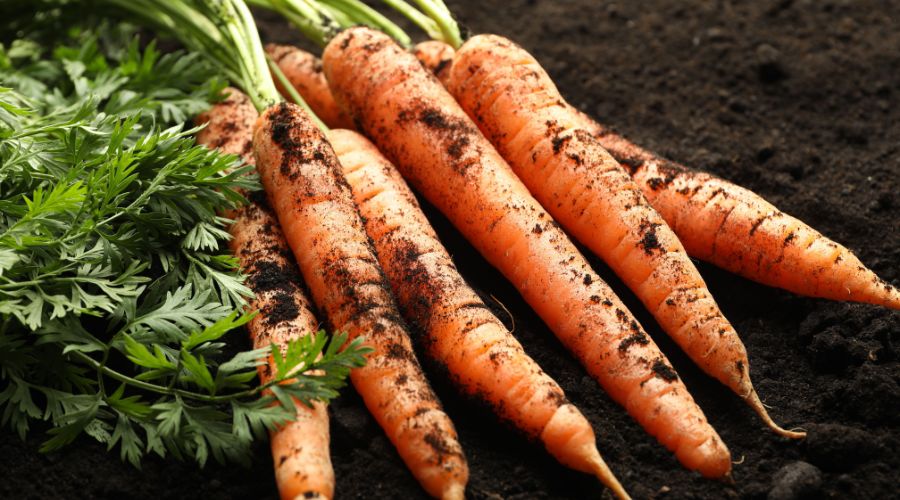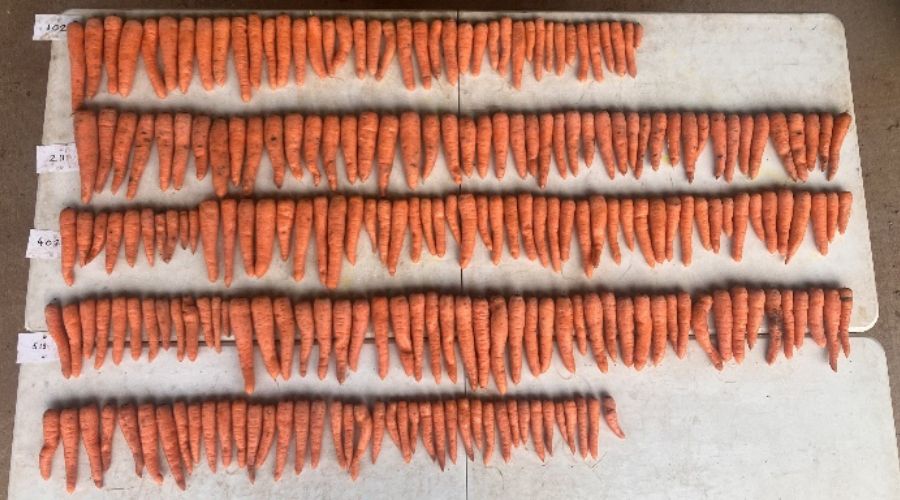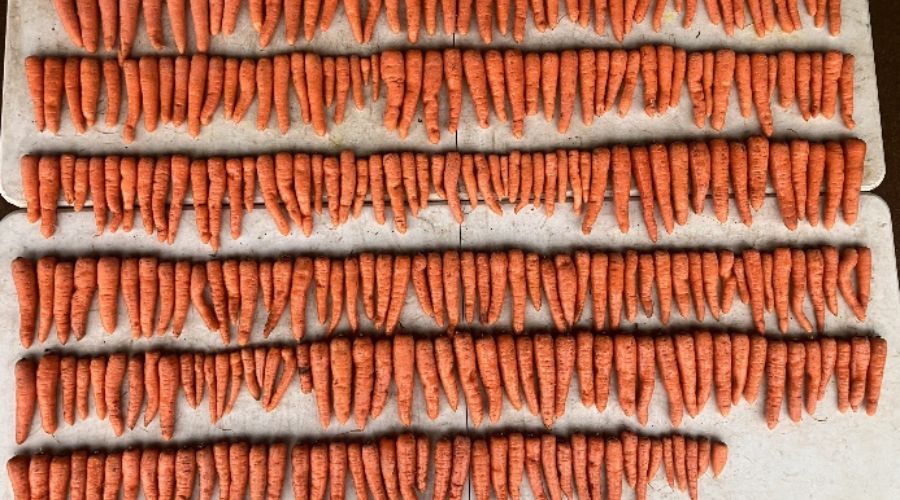Natural fungicide alternative to prevent cavity spot in carrots identified
27th March 2025
Trials conducted by Richard Austin Agriculture have identified a natural alternative to fungicides to prevent cavity spot in carrots.

Using two biostimulants, Sirius and Pluton, the trial showed similar marketable yields to the use of the common fungicide SL567A.
Orion’s research and development agronomist Kate Williams explained: “This trial demonstrates that biostimulants have a key role to play in the fight against cavity spot.
“Pluton is a liquid plant growth-promoting rhizobacteria (PGPR) and Sirius is a silicon biostimulant that helps the plant take up more nutrients, strengthening it against cavity spot. An increase in calcium levels in the developing roots is particularly key.”
AHDB figures suggest that between 15 and 20 percent of carrot crops can be rejected by buyers as a result of the soil-borne Pythium disease, which can penetrate early in the crop-growing season and enlarge as the roots develop.
The trial demonstrated that applications of Sirius at a rate of 0.5l/ha and Pluton at 0.5l/ha, applied at drilling, 1-2 true leaf, and 3-4 true leaf stages, produced similar results to SL567A at 1.3l/ha applied at 3-5 true leaf stage.


“The combination of Sirius and Pluton reduced the occurrence of cavity spot lesions, improved crop uniformity and produced a higher marketable yield,” Ms Williams added.
The average plot yield in the trial showed an untreated crop yield of 4.24 kilos. This was improved to 5.23 kilos by the use of SL567A in the control, but a yield of 5.33 kilos was achieved with the biostimulants.
The rate of infection was halved by the use of the biostimulants, and 96% of the treated crop showed no sign of the cavity spot.
“The devastating effect of cavity spot has been exacerbated by the recent wet growing conditions that have given rise to the Pythium violae and Pythium sulcatum fungal diseases. Using biostimulants from drilling until later leaf stages strengthens the plant against latent soil pathogens, as well as other stresses, providing higher yields for growers,” the expert concluded.
Read more arable news.

